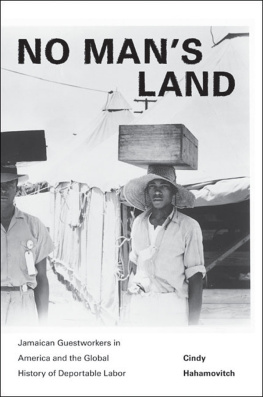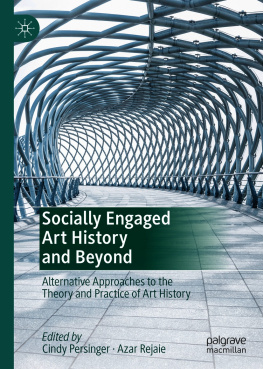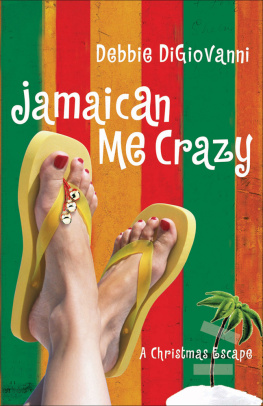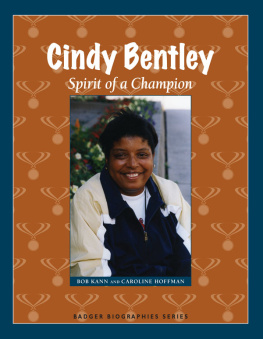Copyright 2011 by Princeton University Press
Published by Princeton University Press, 41 William Street, Princeton, New Jersey 08540 In the United Kingdom: Princeton University Press, 6 Oxford Street, Woodstock, Oxfordshire OX20 1TW
press.princeton.edu
All Rights Reserved
Library of Congress Cataloging-in-Publication Data
Hahamovitch, Cindy.
No mans land : Jamaican guestworkers in America and the global history of deportable labor / Cindy Hahamovitch.
p. cm.
Includes bibliographical references and index.
ISBN 978-0-691-10268-9 (hardcover : alk. paper) 1. Foreign workersUnited States. 2. JamaicaEmigration and immigration. 3. Foreign workers. 4. Deportation. I. Title.
HD8081.A5H34 2011
331.627292073dc22
2011012260
British Library Cataloging-in-Publication Data is available
This book has been composed in Stempel Garamond
Printed on acid-free paper.
Printed in the United States of America
10 9 8 7 6 5 4 3 2 1
Contents
Chapter One
Guestworkers of the World, Unite! You Have Nothing to Lose but Your Passport, Your Visa, Your Immigration Status
Chapter Two
Everything but a Gun to Their Heads: The Politics of Labor Scarcity and the Birth of World War II Guestworker Programs
Chapter Three
Stir It Up: Jamaican Guestworkers in the Promised Land
Chapter Four
John Bull Meets Jim Crow: Jamaican Guestworkers in the Wartime South
Chapter Five
The Race to the Bottom: Making Wartime Temporary Worker Programs Permanent and Private
Chapter Six
A Riotous Success: Guestworkers, Illegal Immigrants, and the Promise of Managed Migration
Chapter Seven
The Worst Job in the World: The Cuban Revolution, the War on Poverty, and the Secret Rebellion in Floridas Cane Fields
Chapter Eight
Takin It to the Courts: Legal Services, the UFW, and the Battle for the Worst Jobs in the World
Chapter Nine
For All Those Bending Years: IRCA, the Dog War, and the Campaign for Legal Status
Chapter Ten
All the Worlds a Workplace: Guestworkers at the Turn of the Twenty-first Century
Acknowledgments
When youve been working on a book as long as Ive been working on this one, you rack up as many debts as a sharecropper, though these are debts Id be happy to pay. I would like to thank the numerous and talented graduate students who have worked on this project over the years: Ellen Adams, Evan Bennett, Jarrett Brown, Fred Carroll, Michael Simoncelli, and John Weber. Id like to thank the staff members here at William & Mary and at Yale University who provided support: Gail Conner, Betty Flanigan, Kay the Principal Mansfield, and Roz Stearns. Special thanks go to the librarians who answered all my crazy questions, especially Marian Smith, Don Welsh, Hope Yellich, Allen Zoellner, and William & Marys incredibly efficient Inter-Library Loan staff. Lindsey Allen, Jarrett Brown, and Patti Brown helped me find my way around Jamaica. Jarretts mother, Rose, and brother, Dayan, put me up in their lovely house in Effort, Jamaica. Sheryl Reid shared her research and her home in Port More, Jamaica. Prize-winning filmmaker Stephanie Black shared the interviews that she conducted when working on her brilliant film, H2 Worker.
Thanks to Taylor & Francis for letting me reproduce sections of my articles, Creating Perfect Immigrants: Guestworkers of the World in Historical Perspective, Labor History 44, 1 (January 2003): 6994; and The Worst Job in the World: Reform, Revolution, and the Secret Rebellion in Floridas Cane Fields, Journal of Peasant Studies 4, 35 (October 2008): 770800. Thanks to Cornell University Press for permission to reuse sections of In America Life Is Given Away: Jamaican Farmworkers and the Making of Agricultural Immigration Policy, from The Countryside in the Age of the Modern State: Political Histories of Rural America, edited by Catherine McNicol Stock and Robert D. Johnston (2001). Copyright 2001 by Cornell University. Used by permission of the publisher, Cornell University Press.
The Agrarian Studies Program at Yale University, the Lyon G. Tyler Department of History, William & Marys Tyler Grant Program, the U.S.-Irish Fulbright Commission, and the Wendy and Emory Reves Center all provided much needed financial support and time. Phil Daileader, Judith Ewell, Jim McCord, and James P. Whittenburg, all chairs of the Lyon G. Tyler Department of History at William & Mary during this project, helped me get where I needed to go. Lindsey Allen, Eric Arnesen, Joan Bak, Evan Bennett, Anne Effland, Judith Ewell, Leon Fink, Jessica Hahamovitch, Rick Halpern, Rhys Isaac, Will Jones, Jeanette Keith, Steve Knaus, Laurie Koloski, Kathy Levitan, Alex Lichtenstein, Jennifer Luff, Nancy MacLean, Leisa Meyer, Gary Mormino, Jason Parker, Richard Price, Kendra Smith, Rohan DSouza, John Weber, and Robert T. Vinson commented on sections of the manuscript, shared invaluable sources, or answered questions (sometimes the same question twice). Linda Gordon, Mae Ngai, and Karin Wulf read the manuscript from cover to cover and offered invaluable suggestions. Thanks also to Karen Verde, who copy-edited the manuscript, and to Sarah Wolf and all the staff at Princeton University Press for a job well done. Walter Comrie, and attorneys Sarah Cleveland, Bruce Goldstein, David Gorman, Steve Routh, Greg Schell, Joe Segor, and Edward Tuddenham shared records with me. A special thanks to the members of the Agrarian Studies Breakfast Club, the Richmond Labor History Group, the William & Mary History Department Brown Bag Series, and the Newberry Library Labor History Group for encouragement and advice. To my colleagues at William & Mary, thanks for making work a joy. To my parents, who babysat so often they might as well have adopted, I couldnt have done it without you. To my son, Renny (a.k.a. Shaggy), who was raised by wolves, thanks for always remembering to ask how it was going. And to Annie, yes, I can play with you now.
Most of all, I want to thank my brilliant husband, Scott Reynolds Nelson, who has walked on eggs for ten years while still managing to offer advice, editorial suggestions, support, love, and lots of latte. Every hoot owl is for you.









